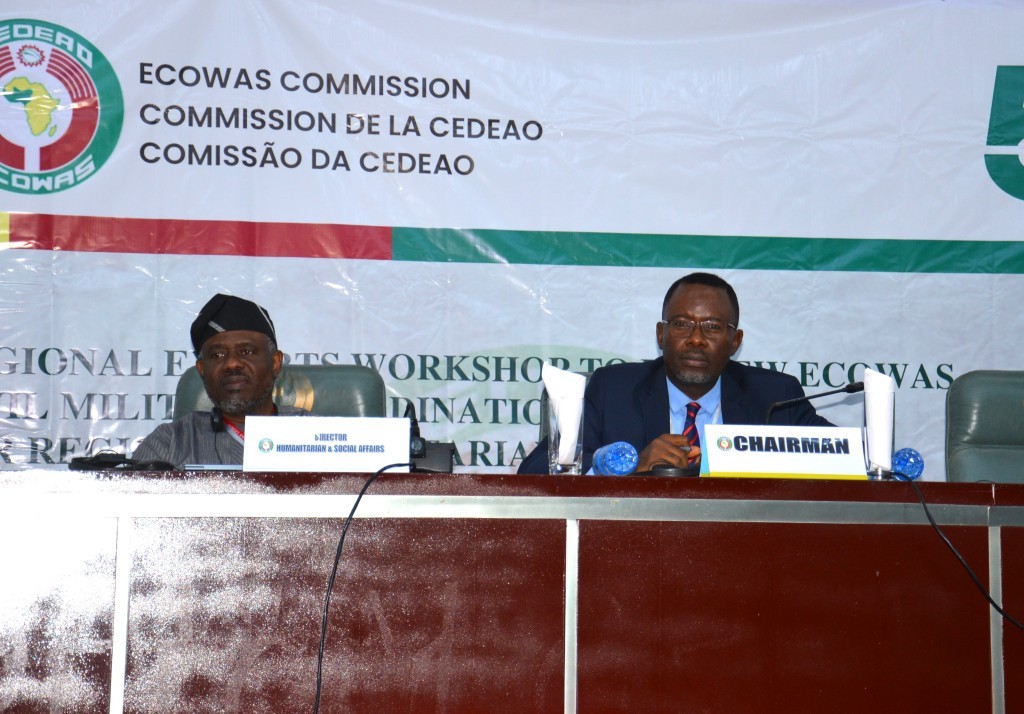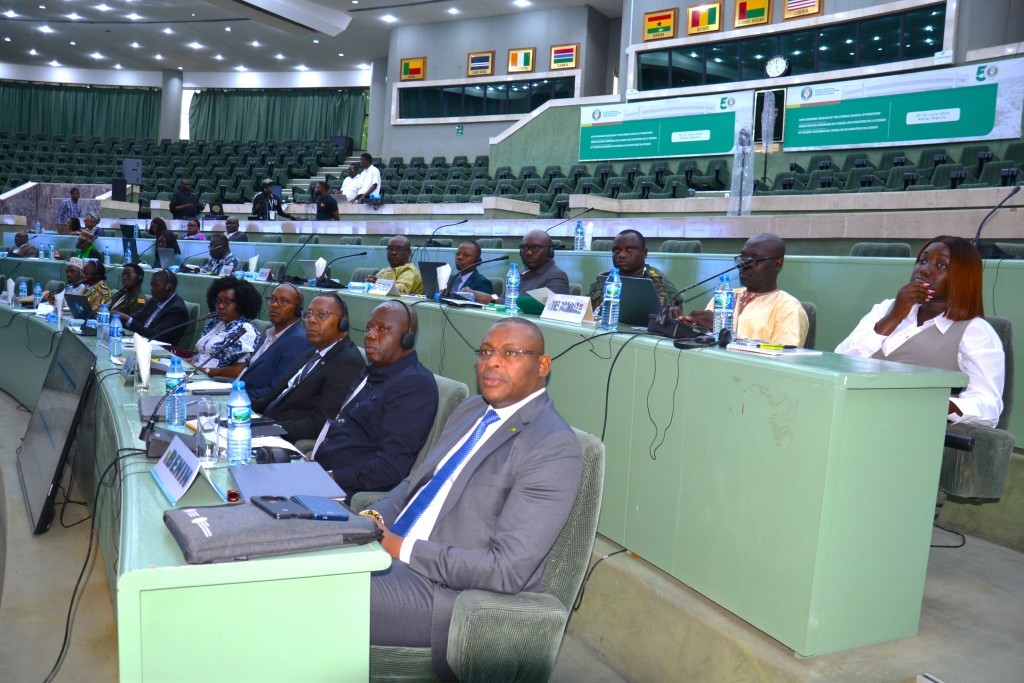ECOWAS Review Humanitarian Action, As Experts Convene in Abuja to Shape Regional Civil-Military Strategy.
By Raymond Enoch
In a landmark move to strengthen humanitarian response mechanisms across West Africa, the Economic Community of West African States (ECOWAS) has convened a high-level regional workshop aimed at reviewing and finalizing a groundbreaking Civil-Military Coordination Strategy for Humanitarian Action.

The four day meeting hosted by the ECOWAS Directorate of Humanitarian and Social Affairs, began on August 5th and will run through August 8th, 2025 in the Nigerian capital, Abuja. The event brings together a diverse cross-section of stakeholders including technical experts from ECOWAS Member States, representatives from regional Centres of Excellence, Civil Society Organizations (CSOs), media outlets, and key humanitarian partners.
This strategic gathering seeks to refine a draft policy document that will serve as the blueprint for managing civil-military interactions during humanitarian crises across the region. Once adopted, the strategy is expected to be institutionalized as a regional framework guiding how military and civilian actors coordinate during emergency responses — from natural disasters to conflict-induced displacement and health pandemics.
The need for such a strategy is increasingly urgent. West Africa faces a complex array of humanitarian challenges, ranging from armed conflict and terrorism to climate-induced disasters and disease outbreaks. In these volatile contexts, the coordination between military forces and humanitarian actors has often been both essential and contentious.
“The objective is to create a harmonized, principled, and practical approach to civil-military coordination that respects humanitarian principles while ensuring effective response,” said an official from the ECOWAS Directorate of Humanitarian and Social Affairs.

During the workshop sessions, participants are critically evaluating the draft strategy to ensure it aligns with international best practices, including the Oslo Guidelines and other globally recognized standards for humanitarian support.
The regional workshop is notable for its inclusivity, with a deliberate emphasis on multi-sectoral representation. Experts from military and security establishments are engaging directly with humanitarian agencies and civil society, fostering dialogue aimed at bridging the gap between operational mandates and humanitarian imperatives.
“This kind of forum is crucial,” noted one participant from a humanitarian NGO. “Too often, coordination breaks down in the field due to lack of understanding or mistrust between actors. This strategy has the potential to change that by setting clear parameters and fostering mutual respect.”
Media organizations are also playing a key role in the proceedings, helping to shape the communications components of the strategy and ensure that public messaging during crises promotes calm, clarity, and cohesion.
By the end of the four-day session, the workshop aims to produce a final draft of the ECOWAS Civil-Military Coordination Strategy. Once approved, it will be submitted to ECOWAS decision-making bodies for adoption as a formal regional policy.
The adoption of this strategy would mark a significant milestone in ECOWAS’s efforts to institutionalize crisis management systems and enhance the resilience of Member States in responding to emergencies.
“In a region as dynamic and diverse as West Africa, having a standardized approach to civil-military coordination is no longer optional — it is essential,” remarked another participant.
As the workshop moves into its final days, there is cautious optimism that the strategy, once adopted, will become a powerful tool for saving lives and preserving dignity in the face of humanitarian emergencies.
At its core, this initiative reflects ECOWAS’s broader commitment to regional solidarity and shared responsibility. By drawing from local knowledge, global standards, and cross-sector collaboration, the new civil-military coordination strategy is poised to set a precedent not only for West Africa but for regional organizations around the world. poised to set a precedent not only for West Africa but for regional organizations around the world.









